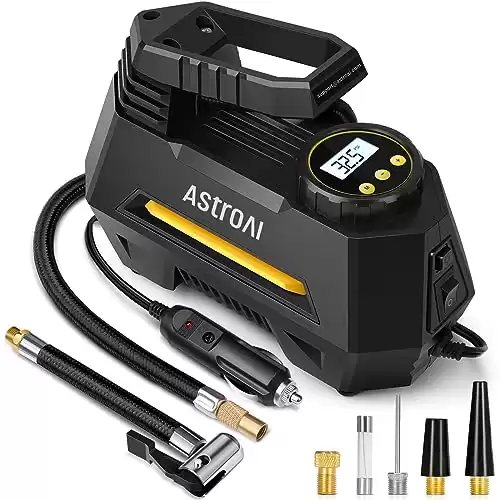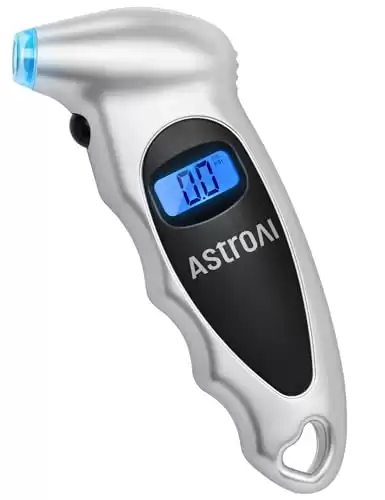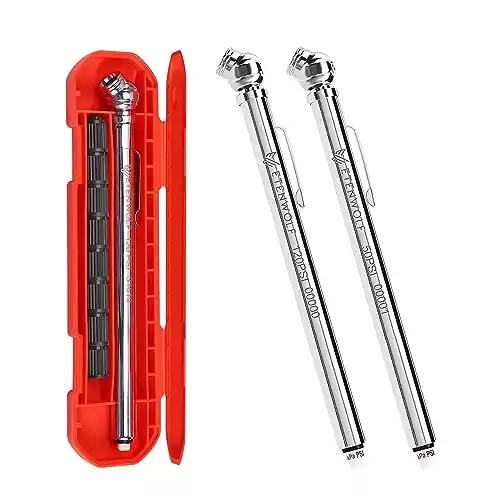
Driving a car that vibrates or shakes when in reverse can be a frustrating experience, and it can indicate a problem with the vehicle’s suspension or drivetrain. Vibrations in a car while reversing can also be caused by issues such as engine issues, worn-out brake pads, uneven tire wear, and other problems. In this article, we discuss the common causes of car vibrations in reverse.
Car Shakes in Reverse? 8 Tips to Diagnose the Issue
If your car shakes in reverse, it can be a sign of an underlying problem. These steps can help you better understand the issue, but always consult with a professional to ensure your vehicle is in optimal condition.
1. Notice the Shaking Intensity
Pay attention to the degree of shaking. Is it a slight vibration or a violent shake? Understanding the severity can provide clues about potential issues, such as a faulty motor mount or issues with the transmission.
2. Check Fluid Levels
Regularly inspect your car’s fluid levels, especially the transmission fluid. If the fluid levels are low, this could cause the car to shake. Be sure to follow your manufacturer’s guidelines on when and how to check these levels.
3. Observe When the Shaking Occurs
Keep a close eye on when the car starts shaking. Is it only when you put the car in reverse for the first time each day, or every time you switch to reverse? If it happens only when you first start the car, this might be a sign of “morning sickness” – a problem in some transmissions that is more noticeable when the vehicle is cold.
4. Consider the Sound
Notice if there are any unusual sounds accompanying the shaking. Grinding, squeaking, or clunking noises could suggest mechanical issues that need professional attention. A grinding noise might point to a transmission issue. If you hear a clunking sound, it could be a problem with the drive shaft or universal joints. Squeaking noises can be related to worn out or damaged belts.
5. Examine Your Tires
Inspect your tires carefully. Look out for irregular wear patterns – these can cause your car to shake while in reverse. Also, ensure that the tires are inflated as per the car maker’s guidelines (mentioned in your car manual or on the sticker inside your door). This can be checked using an easily available tire pressure gauge. If you spot any issues, a trip to the tire shop could be necessary.
6. Notice Performance Changes in Reverse
If your car seems less powerful or ‘stutters’ when you put it in reverse, it could suggest an issue with fuel pressure. Such problems often become more noticeable when the car is working harder, like moving backwards uphill. Although checking fuel pressure requires specialized tools, these symptoms are important to mention to your mechanic. They will be equipped to properly assess and rectify the fuel pressure.
7. Pay Attention to Warning Lights
If your car shakes in reverse and you notice the TPS warning light on your dashboard, it might point towards a faulty throttle position sensor. This sensor tells your car’s computer how far the throttle is open and controls the amount of air entering the engine. When it fails, it can cause shaky movements. Make note of this light and inform your mechanic. They can use specialized tools to confirm if the sensor is the problem and replace it if needed.
8. Look for Other Symptoms
Do you find it difficult to shift from reverse to another gear? Does the car respond slower than usual when you switch to reverse? These symptoms could indicate problems with your transmission, a common cause of cars shaking when put in reverse.
After attempting to diagnose the issue, if the shaking persists, it’s a good idea to have your car checked by a professional. There may be a more complex issue at hand. For more detailed information about a car shaking in reverse, see the sections below.
Potential Reasons Why Your Car Vibrates or Shakes In Reverse

There are a few potential reasons why your car might vibrate when it is in reverse:
Worn or Damaged Drivetrain Components
The drivetrain of a car includes the components that transfer power from the engine to the wheels. If these components, such as the driveshaft or the transmission, are worn or damaged, it can cause vibrations when the car is in reverse.
Drivetrain component issues can cause a car to shake or vibrate when in reverse. The drivetrain, comprising the engine, transmission, driveshafts, differentials, and axles, is responsible for transferring power from the engine to the wheels. Any problem with these components can disrupt this power transfer, leading to vibrations or shaking.
One common drivetrain issue that can cause a car to shake is a problem with the universal joints (U-joints) or constant velocity (CV) joints, which are found in the driveshafts and axles. These joints allow for flexibility in the driveshaft while it transmits power. However, if these joints are worn or damaged, they can cause an uneven power transfer, leading to shaking or vibrating, particularly when the car is under stress, such as when reversing.
Problems with the differential, which adjusts the speed between the two wheels on an axle, can also lead to shaking if the gears within it are worn or damaged. Similarly, issues with the transmission can lead to shaking in reverse, including problems with the transmission mounts, the transmission fluid, or the gears themselves.
Even issues with the engine can lead to shaking, as any problem that causes the engine to run unevenly can disrupt the smooth transfer of power to the wheels. This could be due to issues like a misfire, poor ignition timing, or incorrect fuel-air mixture.
Given the complexity of the drivetrain, it’s recommended to have any suspected issues inspected by a professional mechanic. Regular maintenance can also help prevent many of these issues from developing.
Unbalanced wheels
If the wheels on your car are unbalanced, it can cause vibrations when the car is in motion. This can be especially noticeable when the car is in reverse, as the wheels are turning in the opposite direction.
Damaged Tires
Damaged tires can cause a car to shake or vibrate, including when the vehicle is in reverse. The shaking results from an imbalance in the rotation, affecting the smooth operation of the vehicle. This issue may be particularly noticeable when reversing, as the change in direction can highlight irregularities in tire wear or balance. Damage to the tire itself, such as bulges, cuts, or punctures, can also cause shaking as these defects interfere with the tire’s ability to roll smoothly.
Loose or damaged suspension components
The suspension system of a car helps to absorb shock and keep the car stable while driving. If the suspension components, such as the struts or the shock absorbers, are loose or damaged, it can cause vibrations when the car is in reverse.
Engine issues
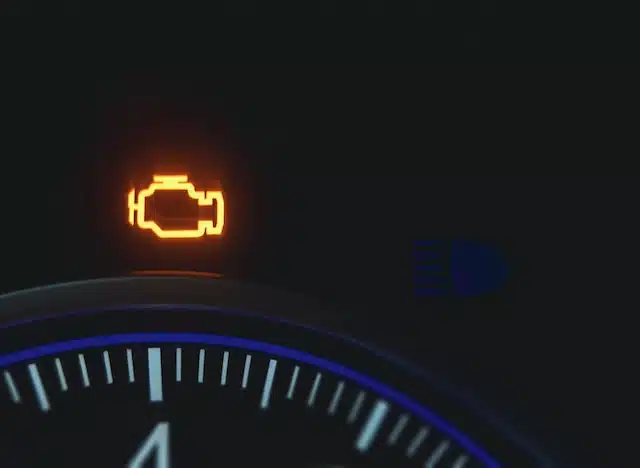
In some cases, engine problems can cause vibrations when the car is in reverse. This could be due to issues such as misfiring, an uneven idle, or a malfunctioning transmission. The engine is the power source for your vehicle, and any problems can disrupt the smooth operation of the car.
For instance, a misfire in one or more cylinders can cause vibrations as the engine’s power output becomes uneven. This is often due to problems with the spark plugs, fuel injectors, or ignition coils. Additionally, problems with the engine mounts can cause shaking. These mounts secure the engine to the vehicle’s frame and absorb vibrations. If they’re damaged or worn out, they can’t effectively dampen these vibrations, leading to the car shaking in reverse.
Another potential cause is a problem with the engine’s timing. If the timing is off, the cylinders won’t fire at the correct times, which can cause the engine to run unevenly and lead to shaking. This could be due to a malfunctioning timing belt or timing chain.
Fuel pressure
Fuel pressure issues can certainly contribute to a car shaking or vibrating, including when the vehicle is in reverse. The fuel system in a car is designed to deliver fuel from the tank to the engine at a specific pressure, which allows the fuel injectors to spray a precise amount of fuel into the combustion chamber.
If the fuel pressure is too low, not enough fuel will reach the engine, causing it to run lean (too much air in the air-fuel mixture). This can lead to misfires, resulting in shaking or vibrations. On the other hand, if the fuel pressure is too high, the engine will run rich (too much fuel in the air-fuel mixture), which can also cause misfires and vibrations.
Transmission Issues
Transmission mounts and transmission fluid both play crucial roles in the smooth operation of your vehicle, and problems with either can result in a car shaking while in reverse.
Transmission mounts secure the transmission to the car and absorb the vibrations and road shock that come from driving. Over time, these mounts can wear out or become damaged. When they do, they’re less effective at dampening vibrations, which can lead to the vehicle shaking. This issue may become more noticeable when the vehicle is under stress, such as when reversing or accelerating.
On the other hand, transmission fluid serves as the lubricant for the gears in the transmission. This fluid helps the gears to shift smoothly, and it also works to cool the transmission and prevent overheating. If the fluid is low, dirty, or old, it can’t perform these tasks effectively, leading to poor gear shifting and potential shaking. Low or contaminated transmission fluid can cause delayed or jerky gear shifts, especially in reverse where the gear design may differ.
Transmission Oil Filter Issues
A problem with the transmission oil filter can indeed lead to your car shaking in reverse. The transmission oil filter’s role is to keep the transmission fluid clean by filtering out harmful particles and contaminants. If the filter becomes clogged or damaged, it can hinder the flow of transmission fluid, leading to inadequate lubrication for the moving parts within the transmission.
This lack of lubrication can lead to poor shifting performance, including shaking or juddering, especially when the vehicle is in reverse. This is because the transmission is not able to operate smoothly due to the increased friction and heat caused by insufficient lubrication.
Torque Converter Issues
The torque converter plays a vital role in vehicles with automatic transmissions, essentially acting as the connection between the engine and the transmission. A malfunctioning torque converter can indeed cause your car to shake or vibrate, often more noticeably when the vehicle is under stress, such as when reversing.
Inside the torque converter, fluid is used to transfer torque from the engine to the transmission. If this fluid becomes dirty or if the converter is damaged, it can cause uneven power transfer, leading to juddering or shaking. This issue is often accompanied by other symptoms like slippage (where the car revs but doesn’t accelerate as it should), overheating, and strange noises from the transmission.
Another issue could be a damaged or faulty torque converter clutch, which can cause jerking or shuddering when the clutch fails to engage or disengage smoothly.
Potential Clutch Issues at Play
A car that shakes specifically when in reverse could indeed be indicative of a clutch-related problem. The reverse gear in manual transmissions is often different from the forward gears in terms of design and operation, hence any problem with the clutch might manifest more prominently when the vehicle is in reverse. For example, a worn out or misaligned clutch can cause jerky movements or vibrations due to improper engagement and disengagement.
Faulty sensors
Faulty sensors, like those associated with the throttle body, can indeed contribute to a car shaking or vibrating, including when it’s in reverse. The throttle body sensor, often referred to as the throttle position sensor (TPS), communicates the position of the throttle to the car’s computer system to regulate fuel injection, ignition timing, and other engine operations.
If the TPS is damaged or malfunctioning, it can send incorrect information to the engine control unit (ECU), leading to an imbalanced air-fuel mixture or improper ignition timing. This imbalance can cause the engine to misfire or run unevenly, leading to vibrations that may be especially noticeable when the vehicle is under stress, such as when reversing.
Other symptoms of a faulty TPS may include erratic acceleration, poor fuel economy, or engine stalling. As with any suspected mechanical issue, it’s recommended to have your vehicle inspected by a professional mechanic to diagnose and address the problem. A faulty sensor can often be replaced fairly easily to restore normal vehicle operation.
How To Fix The Problem?
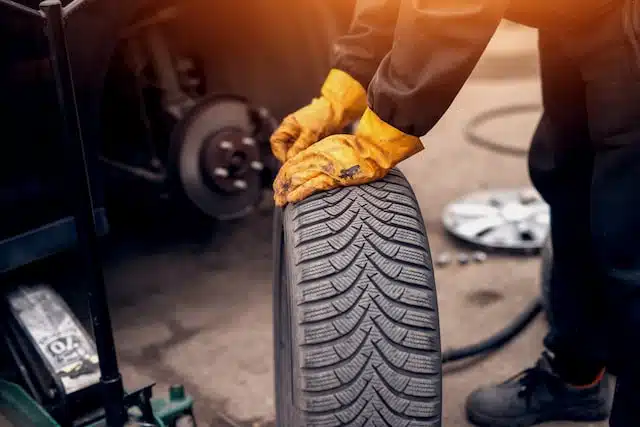
Engine inspection
It’s important to note that engine problems can lead to serious damage if not addressed promptly. If your car is shaking in reverse and you suspect an engine issue, it’s recommended to have it inspected by a professional mechanic as soon as possible.
Check the brake pads
Worn-out brake pads can cause vibrations while reversing, as the braking system may not be working as efficiently as it should. If the brake pads are worn, they should be replaced immediately.
Inspect the tires
Uneven wear on the tires can cause vibrations when reversing. Check the tire tread depth, if the wear is uneven, it’s time to rotate the tires or replace them if needed.
Check the suspension
Worn-out or damaged suspension components can cause vibrations while reversing. Check for signs of wear or damage on the struts, shocks, and other suspension components and replace them if necessary.
Check the drivetrain
If the vibrations are coming from the drivetrain, it could indicate a problem with the CV joints, differential or the transmission. If you suspect a drivetrain issue, it’s best to get a professional diagnosis and repair.
Have a wheel alignment and balance check
Vibrations while reversing can be caused by a misaligned wheel or wheels that are out of balance, wheel alignment and balance should be done to ensure that all the wheels are in perfect condition.
It’s important to keep in mind that, these causes and solution mentioned above are just a starting point, and your car might require a different repair. It’s always a good idea to have a professional mechanic check out your car if you’re unsure about what’s causing the vibrations or how to fix it.
Why Is My Car Shaking When Reversing on Cold Starts?
Experiencing vibrations when reversing a cold car can be concerning. This phenomenon is often linked to specific underlying issues. Let’s explore the five main culprits: transmission fluid consistency, motor mounts, transmission problems, drive shaft or U-joints, and brake components.
- Transmission Fluid Viscosity: Transmission fluid thickens in colder temperatures. When the car is cold, the fluid might not circulate as efficiently, causing the transmission to operate less smoothly, leading to vibrations. As the vehicle warms up, the fluid’s consistency improves, allowing for smoother gear engagement.
- Motor Mounts: Cold temperatures can make motor mounts, which are typically made of rubber and metal, become stiffer and less effective in dampening engine vibrations. If these mounts are worn or damaged, the vibration can be more noticeable, especially during initial startups in colder conditions.
- Transmission Issues: Wear and tear on the transmission’s internal components can lead to problems that become apparent when the vehicle is cold. This includes worn out reverse gear teeth or issues with the transmission’s reverse band.
- Drive Shaft or U-Joints: These components can also be the source of vibration. If they’re worn or out of balance, the issue may be more pronounced during a cold start.
- Brake Components: Sometimes, if there’s an issue with brake components, it can cause a vibration when reversing. Cold conditions can exacerbate any underlying issues with the braking system.
Things To Avoid When A Car Shakes or Vibrates In Reverse

If your car shakes or vibrates when you’re in reverse, it could be a sign of a problem with your vehicle. Here are some things to avoid when you experience this issue:
Don’t ignore the problem
Vibrations or shaking in your car is a warning sign that something isn’t right. It’s important to have your vehicle inspected by a professional mechanic to identify the root cause of the problem.
Don’t rev the engine
Avoid revving the engine when you’re experiencing shaking in reverse, as this can make the problem worse and cause further damage to your vehicle.
Don’t accelerate suddenly
Avoid accelerating suddenly when you’re in reverse, as this can also exacerbate the shaking or vibration issue. Instead, accelerate slowly and steadily to see if the shaking subsides.
Don’t continue driving the car
If you’re experiencing shaking or vibrations in your car when in reverse, it’s best to avoid driving it until the problem is identified and fixed. Continuing to drive the car could cause additional damage and put you and other drivers on the road at risk.
Don’t overlook routine maintenance
Regular maintenance is key to preventing problems like shaking or vibrations in your car. Be sure to keep up with routine maintenance like oil changes, tire rotations, and brake inspections to keep your vehicle running smoothly.
Top 5 Reasons Your Car is Shaking or Vibrating – Symptoms and Fixes Included | Via Ratchets And Wrenches
FAQ: Car Vibrates or Shakes In Reverse
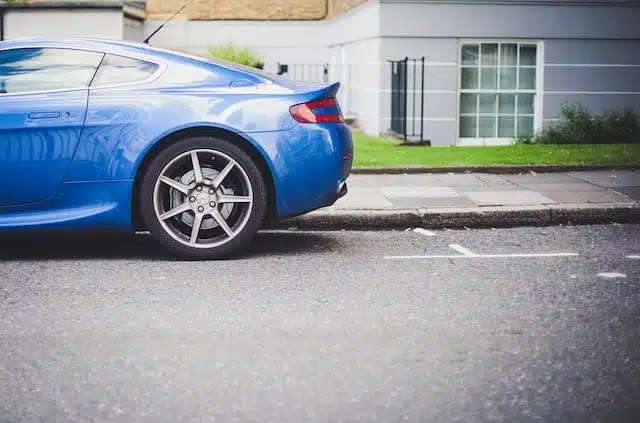
Q: What are the common causes of a car shaking or vibrating when in reverse?
A: Common causes of car shaking or vibrating in reverse include engine issues, faulty spark plugs, worn engine mounts, low fuel pressure, transmission issues, misfiring, uneven tire wear, and unbalanced drive shaft.
Q: Can worn engine mounts cause a car to shake in reverse?
A: Yes, worn or damaged engine mounts can cause a car to shake in reverse. Engine mounts are responsible for holding the engine in place and isolating vibrations. When they wear out, the engine may move excessively, causing the car to shake.
Q: How can transmission issues lead to a car shaking in reverse?
A: Transmission issues such as damaged gear teeth, worn clutches, or low transmission fluid can cause a car to shake in reverse. These issues can affect the smooth transfer of power from the engine to the wheels, leading to shaking or vibrations.
Q: Can misfiring cause my car to shake in reverse?
A: Yes, misfiring can cause a car to shake in reverse. Misfiring occurs when the engine’s cylinders fail to fire correctly, leading to uneven power delivery and vibrations.
Q: How can uneven tire wear contribute to car shaking in reverse?
A: Uneven tire wear can lead to imbalances in the vehicle, causing the car to shake when in reverse. Regular tire rotation, alignment checks, and maintaining proper tire pressure can help prevent uneven wear.
Q: Can an unbalanced drive shaft cause a car to shake in reverse?
A: Yes, an unbalanced drive shaft can cause a car to shake in reverse. The drive shaft is responsible for transmitting power from the engine to the wheels, and if it’s unbalanced, it can cause vibrations and shaking.
Q: What should I do if my car shakes only in reverse?
A: If your car shakes only in reverse, it’s essential to have it inspected by a qualified mechanic to diagnose the issue and perform necessary repairs. Ignoring the problem could lead to further damage and costly repairs.
Q: How can I prevent my car from shaking in reverse?
A: Regular vehicle maintenance, including checking engine mounts, transmission fluid, tire pressure, and alignment, can help prevent your car from shaking in reverse. If you notice any shaking or vibrations, it’s best to consult a mechanic to diagnose and fix the issue promptly.
Q: Can a damaged exhaust system cause a car to shake in reverse?
A: Yes, a damaged exhaust system, such as a broken or loose exhaust pipe, can cause a car to shake in reverse. The shaking occurs when the exhaust system vibrates against the vehicle’s chassis or other components.
Q: How do I know if my car’s shaking in reverse is due to a transmission problem?
A: If your car’s shaking in reverse is accompanied by issues like slipping gears, difficulty shifting, or unusual noises, it could be a transmission problem. It’s essential to consult a mechanic for a proper diagnosis and repair.
Q: Can worn suspension components cause my car to shake in reverse?
A: Yes, worn suspension components like bushings, struts, or shock absorbers can cause a car to shake in reverse. These components help absorb vibrations and maintain a smooth ride, so when they wear out, the car may experience increased vibrations.
Q: Can a damaged CV joint cause my car to shake in reverse?
A: Yes, a damaged CV (constant velocity) joint can cause a car to shake in reverse. CV joints are responsible for transferring power from the transmission to the wheels while allowing for suspension movement. A damaged CV joint can lead to vibrations and shaking during specific driving conditions, like reversing.
Q: Will a wheel alignment help with my car shaking in reverse?
A: If the shaking in reverse is caused by uneven tire wear or misaligned wheels, a wheel alignment can help resolve the issue. However, if the shaking is due to another problem like engine mounts or transmission issues, a wheel alignment alone will not fix the problem.
Q: Can a failing torque converter cause a car to shake in reverse?
A: Yes, a failing torque converter can cause a car to shake in reverse. The torque converter is responsible for transferring power from the engine to the transmission. If it’s malfunctioning, it can cause the vehicle to shake during specific driving conditions, including reverse.
Q: Can unbalanced tires cause my car to shake in reverse?
A: Yes, unbalanced tires can cause a car to shake in reverse. Unbalanced tires create uneven wear and can lead to vibrations during specific driving conditions, including reversing. To resolve this issue, it’s important to have your tires balanced by a professional.
Q: Can a failing motor mount cause my car to shake in reverse?
A: Yes, a failing motor mount can cause your car to shake in reverse. Motor mounts are responsible for securing the engine to the vehicle’s chassis and absorbing vibrations. If a motor mount is worn or damaged, it can cause excessive vibrations and shaking during certain driving conditions, including reverse.
Q: Can a misfiring engine cause my car to shake in reverse?
A: Yes, a misfiring engine can cause a car to shake in reverse. Engine misfires can create vibrations that are more noticeable during specific driving conditions, including reversing. To resolve this issue, you should have your engine inspected and repaired by a qualified mechanic.
Q: Can worn brake components cause my car to shake in reverse?
A: Worn brake components, such as warped rotors or worn brake pads, can cause vibrations while braking, but they generally don’t cause a car to shake specifically in reverse. However, if you experience shaking while reversing and applying the brakes, it’s a good idea to have your brake system inspected by a professional mechanic.
Q: Can loose or damaged wheel bearings cause my car to shake in reverse?
A: While loose or damaged wheel bearings can cause vibrations and noise during driving, they typically don’t cause a car to shake specifically in reverse. However, it’s important to address any wheel bearing issues promptly, as they can lead to further damage and unsafe driving conditions.
Q: Why does my car shake in reverse when it’s a manual transmission?
If your manual transmission car shakes when in reverse, there could be several potential reasons. Common culprits include faulty spark plugs which can cause engine misfires, leading to shaking. Worn engine mounts could also be the cause; these components hold the engine to the car’s frame, and when they’re worn, they don’t effectively dampen the engine’s vibrations. Issues related to low fuel pressure can cause improper combustion, resulting in a shaking sensation. Transmission problems, including worn-out gears, could also lead to shaking, especially when engaging reverse. Uneven tire wear and an unbalanced driveshaft can also cause the vehicle to shake due to imbalances in rotation. It’s crucial to get your vehicle checked by a professional mechanic to pinpoint and rectify the issue, preventing further damage to your car.
Q: Does the type of transmission (manual vs automatic) influence why my car shakes in reverse?
Yes, the type of transmission can influence why your car shakes in reverse. In manual transmissions, issues like a worn-out clutch or problems with the gear synchronizers can cause shaking, especially when the vehicle is in reverse. On the other hand, in automatic transmissions, problems with the torque converter or automatic transmission fluid can lead to a similar issue.
Q: Are the solutions different for car shaking in reverse for manual and automatic transmissions?
Yes, solutions can vary based on the type of transmission. For manual transmissions, resolving the issue could involve replacing the clutch or addressing issues with the gear synchronizers. For automatic transmissions, the solution might involve repairing or replacing the torque converter or changing the transmission fluid. In both cases, a professional mechanic should be consulted to accurately diagnose and repair the issue.
Q: Does the drive type (2WD vs 4WD) affect the reasons why my car shakes in reverse?
The drive type can also have an impact. In both 2WD and 4WD vehicles, common causes like damaged tires, faulty transmission mounts, or engine problems can result in shaking. However, in 4WD vehicles, additional factors may come into play. For instance, problems with the transfer case, which distributes power to the front and rear axles, could potentially cause shaking, particularly if it’s not engaging or disengaging properly.
Q: What does it mean if my car feels weird in reverse?
If your car feels weird or behaves differently when you put it in reverse, this could indicate a variety of issues. These may range from transmission problems to issues with your wheels, suspension, or even brakes. Symptoms may include jerking, hesitation, strange noises, or difficulty in movement.




